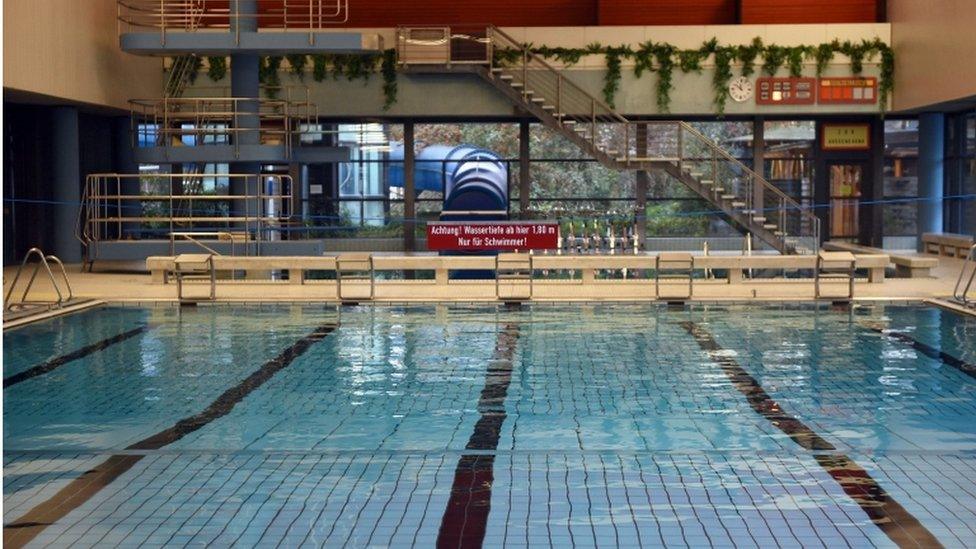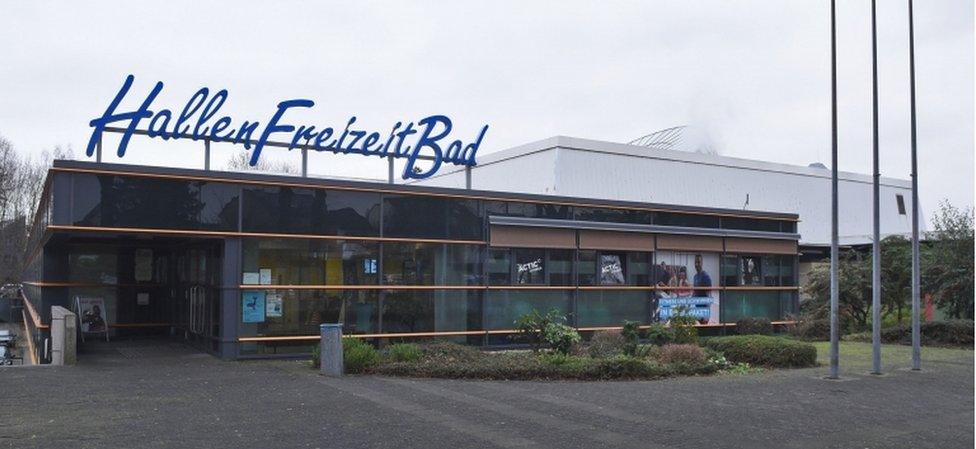Cologne attacks: Migrant men banned from German swimming pool
- Published

The behaviour of men from a nearby asylum seekers' shelter apparently caused women to leave
A German town has banned male asylum seekers from a public swimming pool after women complained of harassment.
A government official in Bornheim said men from a nearby asylum shelter would be barred until they "got the message" that such behaviour was not acceptable.
It follows outrage over hundreds of sexual assaults in nearby Cologne and other German cities on New Year's Eve.
Those attacks, by men of mainly Arab and North African origin, raised tensions over the influx of migrants.
More than 1.1 million people claimed asylum in Germany in 2015.

It is unclear how the ban will be enforced
The head of the social affairs department in Bornheim - about 20km (12 miles) south of Cologne - said the move to ban migrant men followed increasing number of reports of inappropriate behaviour from female swimmers and staff members.
"There have been complaints of sexual harassment and chatting-up going on in this swimming pool... by groups of young men, and this has prompted some women to leave," Markus Schnapka told Reuters.
He said none of the complaints involved a crime being committed, but that social workers in the town would help to ensure the asylum seekers changed their behaviour.
It is unclear how this rule will be enforced, although Germany is set to introduce new ID cards for migrants in February, external.
Support falling
Correspondents say the pool ban is the latest sign of increased tensions following the Cologne attacks.
On Thursday, the authorities in another town in west Germany, Rheinberg, cancelled a carnival parade planned for February over security concerns.
Rheinberg's public security chief, Jonny Strey, told German media that events in Cologne had influenced the decision and that officials were worried about from men from migrant backgrounds misbehaving.
Rheinberg Mayor Frank Tatzel later denied this, according to Reuters.
Cologne authorities expressed concern about the city's own carnival in February following the NYE attacks, promising to step up security and public awareness.
An opinion poll on Friday showed public anxiety increasing over the number of refugees and migrants arriving in Germany.
In the research, published by broadcaster ZDF , external(in German), 66% of the 1,203 respondents said Germany could not handle the arrivals, up from 46% in December.
Support for Chancellor Angela Merkel, under pressure over her policies to welcome refugees, also fell - with 39% of people agreeing the chancellor was doing a "good job" in this area, down from 47% in December.